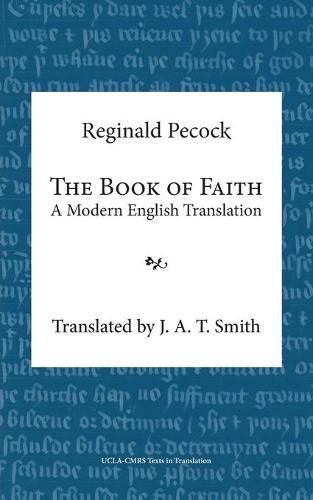Readings Newsletter
Become a Readings Member to make your shopping experience even easier.
Sign in or sign up for free!
You’re not far away from qualifying for FREE standard shipping within Australia
You’ve qualified for FREE standard shipping within Australia
The cart is loading…






Reginald Pecock (ca. 1390-1459) was the cause of a great scandal for the late medieval Church. In the autumn of 1457, the bishop of Chichester confessed, among other things, that the Church itself could err in matters of faith. On the eve of the Protestant Reformation, however, a high-ranking cleric making such a claim was both embarrassing and a big liability. The Book of Faith, finished just months before Pecock’s disgrace, is the only record of this claim. Whether Pecock wrote portions of the treatise in anticipation of an assault that he already saw being set in motion against him, or whether it unintentionally foreshadowed what the highest levels of clerical dissent could look like, this book nonetheless represents a unique attempt to reconcile a critical laity with a conservative Church.In the only modern English translation of Pecock’s work, the impassioned, earnest, and often exasperated bishop comes to life-and along with him the drama of religious dissent in the pre-Reformation English Church.
$9.00 standard shipping within Australia
FREE standard shipping within Australia for orders over $100.00
Express & International shipping calculated at checkout
Reginald Pecock (ca. 1390-1459) was the cause of a great scandal for the late medieval Church. In the autumn of 1457, the bishop of Chichester confessed, among other things, that the Church itself could err in matters of faith. On the eve of the Protestant Reformation, however, a high-ranking cleric making such a claim was both embarrassing and a big liability. The Book of Faith, finished just months before Pecock’s disgrace, is the only record of this claim. Whether Pecock wrote portions of the treatise in anticipation of an assault that he already saw being set in motion against him, or whether it unintentionally foreshadowed what the highest levels of clerical dissent could look like, this book nonetheless represents a unique attempt to reconcile a critical laity with a conservative Church.In the only modern English translation of Pecock’s work, the impassioned, earnest, and often exasperated bishop comes to life-and along with him the drama of religious dissent in the pre-Reformation English Church.